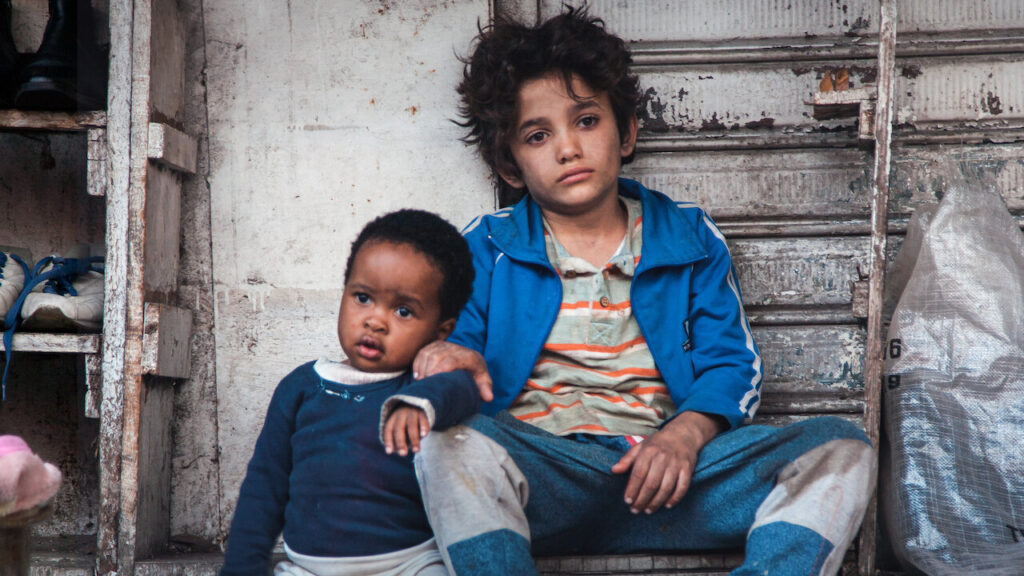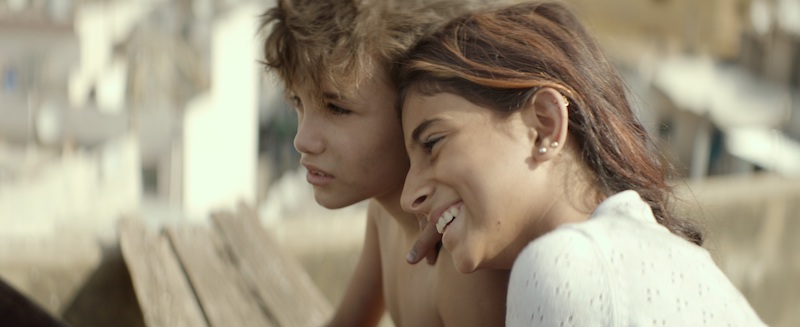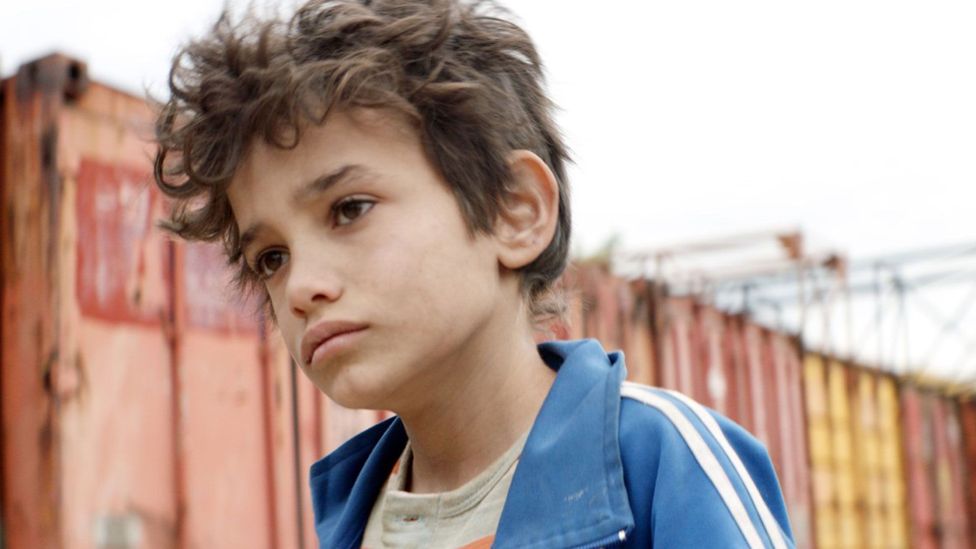Today I thought I would start another series of articles here on the blog dedicated exclusively to movies made in languages other than English that I would like to shed some light on, and hopefully encourage some of you to see them. Though trends are beginning to change, watching English-speaking productions is still the norm globally, comprehensively so, but it does have the unfortunate side effect of making us viewers miss out on some incredible work from other parts of the world. So, from now on, I’ll endeavor to add more entries to this series and increase the roster of movies from other countries in your movie library. And of course, if you know of any films in foreign languages that you would like me to write about, let me know in the comments.

In this first article, I’ll be speaking about Capernaum, a 2018 Lebanese production from director Nadine Labaki and starring Syrian refugee child actor Zain Al Rafeea as the protagonist, also named Zain. The movie tells Zain’s story, that of a 12-year-old boy, living in the slums of Beirut, who is sent to prison after stabbing another man. From within prison, he decides to sue his parents for conceiving him, without having the means to take care of him, or his brothers and sisters.
The movie then flashes back from this opening contextualization to explore Zain’s life up to his arrest, the reality of the misery and poverty in which he lives, and what ultimately leads him to commit the crime for which he is arrested. We see how neither Zain, nor anyone of his siblings attend school, being instead used to work in order to support the decadent home in which they all live, we see Zain’s sister Sahad being forced into a marriage by her parents with the landlord’s son after getting her first period and how this motivates Zain to flee from home and find refuge with an Ethiopian woman named Rahil and her baby son Yonas, which takes up the majority of the second act.
Without saying anything else about the plot, you should already imagine that this movie is pretty bleak. And you’d be right. It’s painfully unsettling to see the conditions in which these children live, and the strain that they are put under from having to take on such responsibilities at such a young age. At the same time, the movie doesn’t feel like it’s overly dramatizing the situation, as if it’s leveraging the misery of the characters to gain points with the audience. Rather Zain, and everyone else around him face their situations more in a matter-of-fact way, because this is their reality and what they know, which makes everything feel that much more real and authentic. This also allows the movie to have the characters share some humorous moments with each other, which are few and far between, but that help break up the intensity of the events surrounding them.
The script itself is light on words, but heavy on narrative and emotional cues from physical movements and facial expressions, which are delivered spectacularly by the actors on screen. This just might be the best child acting I’ve ever seen, in anything. Zain Al Rafeea, who is on scene pretty much from beginning to end presents an immense degree of maturity, which fits his character of course, and with such heaviness in his eyes and delivery of his lines that it rivals the best dramatic performances I saw in 2018, making me wonder how he wasn’t nominated for more awards.

The remainder of the cast is just as good, with the other highlight being Yordanos Shiferaw as Rahil, who struggles with being an illegal immigrant trying to earn enough money to pay for a forged visa and achieve a better life for herself and her son Yonas, and who takes in Zain when he has nowhere else to go. Her character serves as a contrast to Zain’s parents, whose affection for their children is more utilitarian than anything else. Rahil’s love for her son runs much deeper and being an adult, she is able to understand the realities and dangers of the world more sharply than Zain, so when tragedy strikes their situation, we really feel the emotional pain and distress through her, because like her, we understand the consequences of what’s going on, and Shiferaw portrays that very powerfully.
The movie is definitely made in a way that urges the viewer to have a detailed grasp of the poverty of this part of the world that many viewers might be unfamiliar with. The camera lingers on certain details of Zain’s home and neighborhood, of the amusement park where Rahil works, of the home she shares with Zain for awhile that put a spotlight on aspects of this nature of living that will repulse, quite intentionally, the viewer, with the main example of this being one of Zain’s smaller siblings wearing a chain around its ankle at home to avoid any dangers when left unattended.
There’s also a mix of camerawork techniques on display, from very cinematic stable shots, to more handheld approaches, almost like a documentary when displaying certain activities the characters carry out in their day-to-day lives. This mix of showcasing a very real part of the world in an authentic way, along with the commitment to an engaging movie experience is one of several decisions from Labaki that makes Capernaum so deeply compelling.
Other reviews pointed how the splicing in of scenes within the courtroom together with the chronological flashbacks of Zain’s story breaks the narrative momentum of the movie. I have to say that for me, that back-and-fourth actually helped the flashback scenes not drag for too long, and the courtroom moments are brief and provide useful contextualization for the events that have happened and were going to happen, so I didn’t mind that choice of structure.
Ultimately, Capernaum is a film that walks a difficult path of portraying extreme poverty without relying on its misery to drive the emotional core of the story in a condescending way, and it succeeds. The movie stays away from such moralizations until the very end, when Labaki allows Zain a moment in the spotlight to voice his frustrations and disappointments with the world, and because before that no such statement had been made, this final release makes the ending that much more impactful. It is not happy, vindictive, or particularly cathartic for Zain, but it is brutally honest and sincere, which is what this film strives most to be, in the end.

